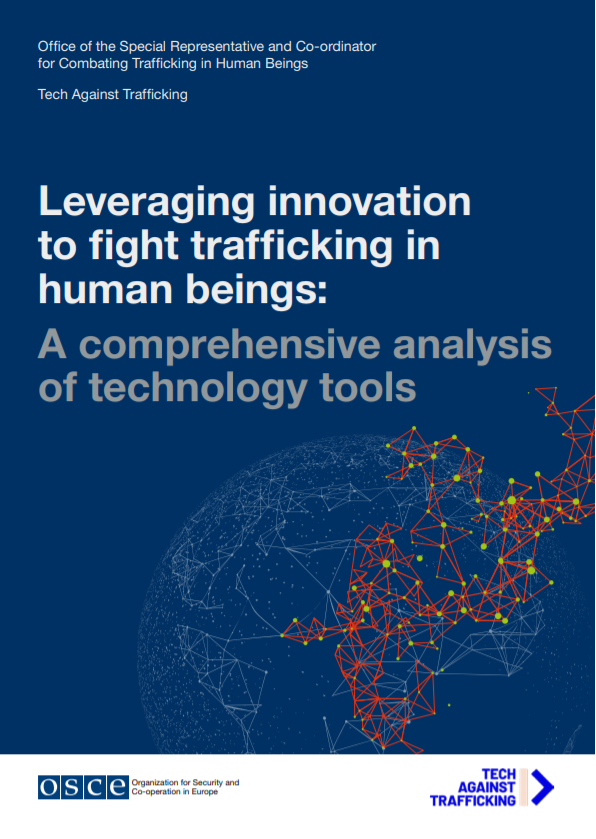The publication takes stock of technology tools and initiatives developed to combat trafficking in human beings in its different forms in the OSCE area and beyond. It also examines the ways technology can be misused to facilitate trafficking in human beings. It is the first known publication to conduct a global analysis of how different stakeholders, including law enforcement, civil society, businesses and academia can take advantage of technology to advance the fight against the human trafficking crime.
The publication also provides recommendations to governments and organizations funding technology projects on how to maximize the value of technology-based solutions.

